More From the Los Angeles Times
-
-
Nov. 3, 2024
-
-
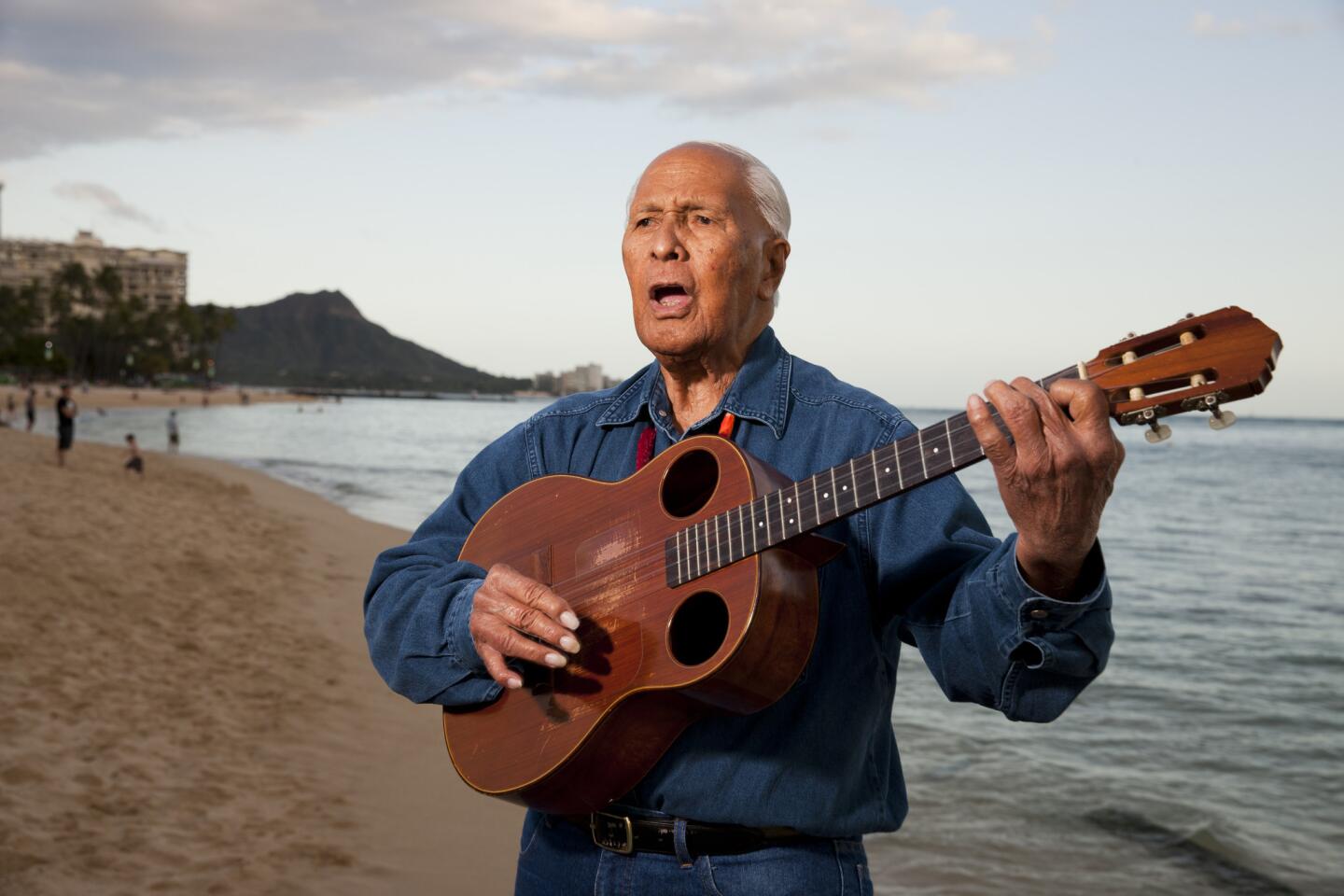
Ukulele legend Eddie Kamae plays a few songs on Waikiki Beach. (Marco Garcia / For The Times )
Acclaimed for helping revive Hawaiian culture, musician Eddie Kamae reveals a Honolulu steeped in the old ways and far from the tourist trappings.
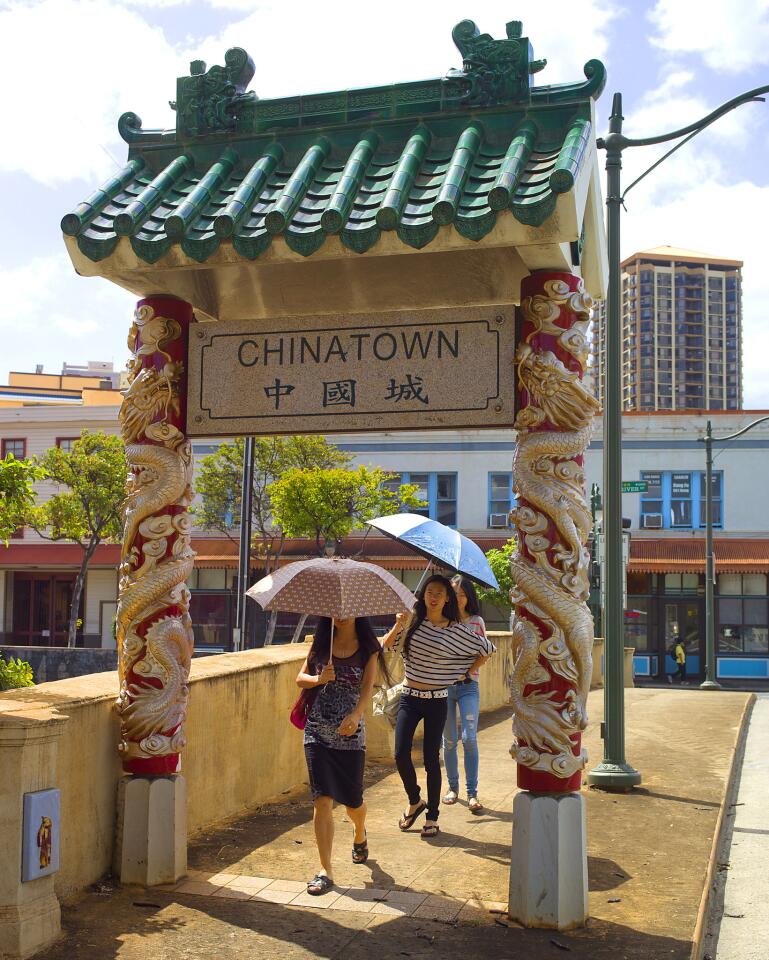
The Chinatown where Kamae once roamed has changed dramatically over the years, from a teeming red-light district with tattoo parlors and taverns to today’s epicenter of hipster Honolulu. (Marco Garcia / For The Times )
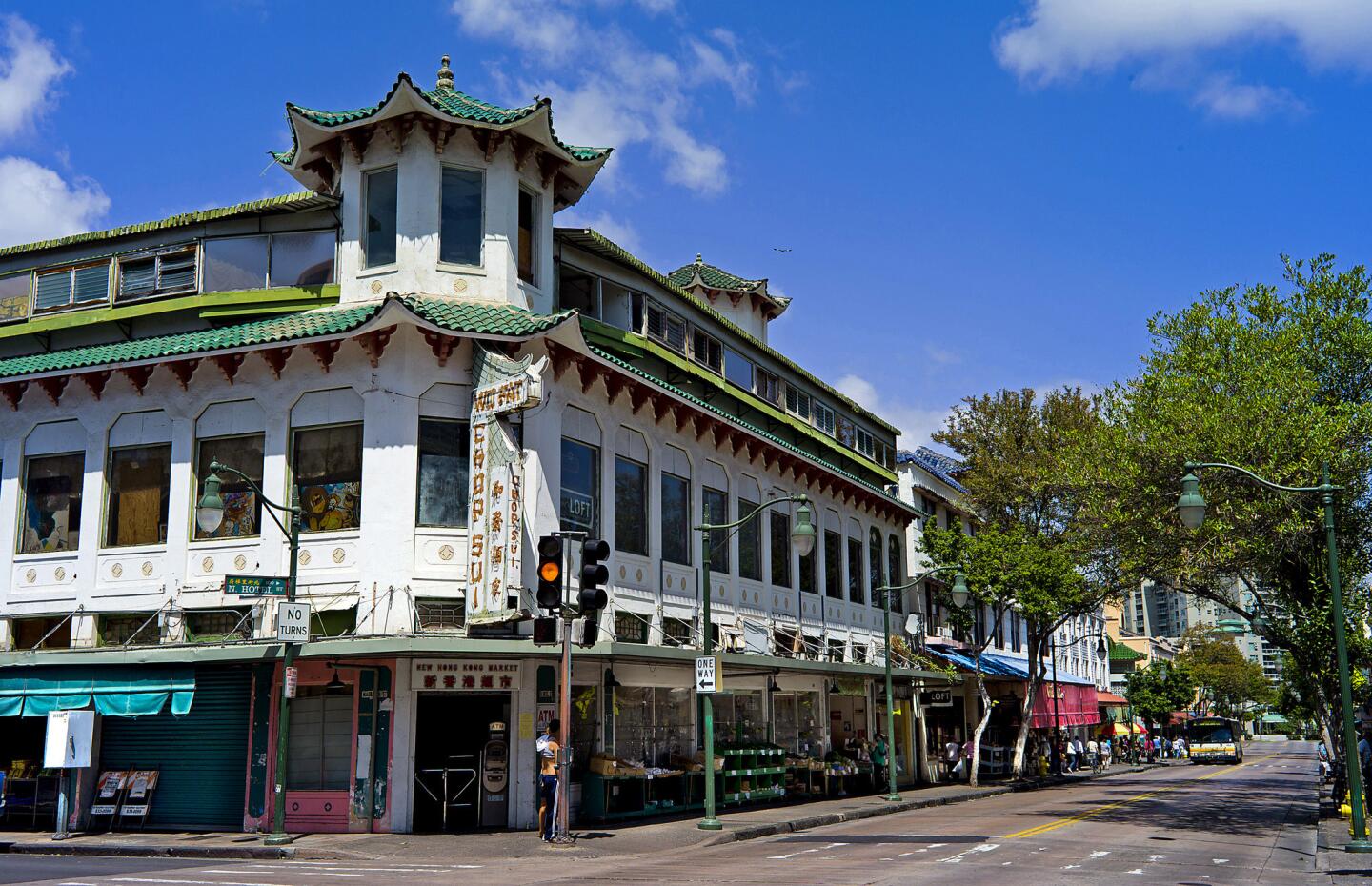
The historic Wo Fat Chop Sui house in Honolulu. As a child, Kamae sold newspapers in front of this building. (Marco Garcia / For The Times )
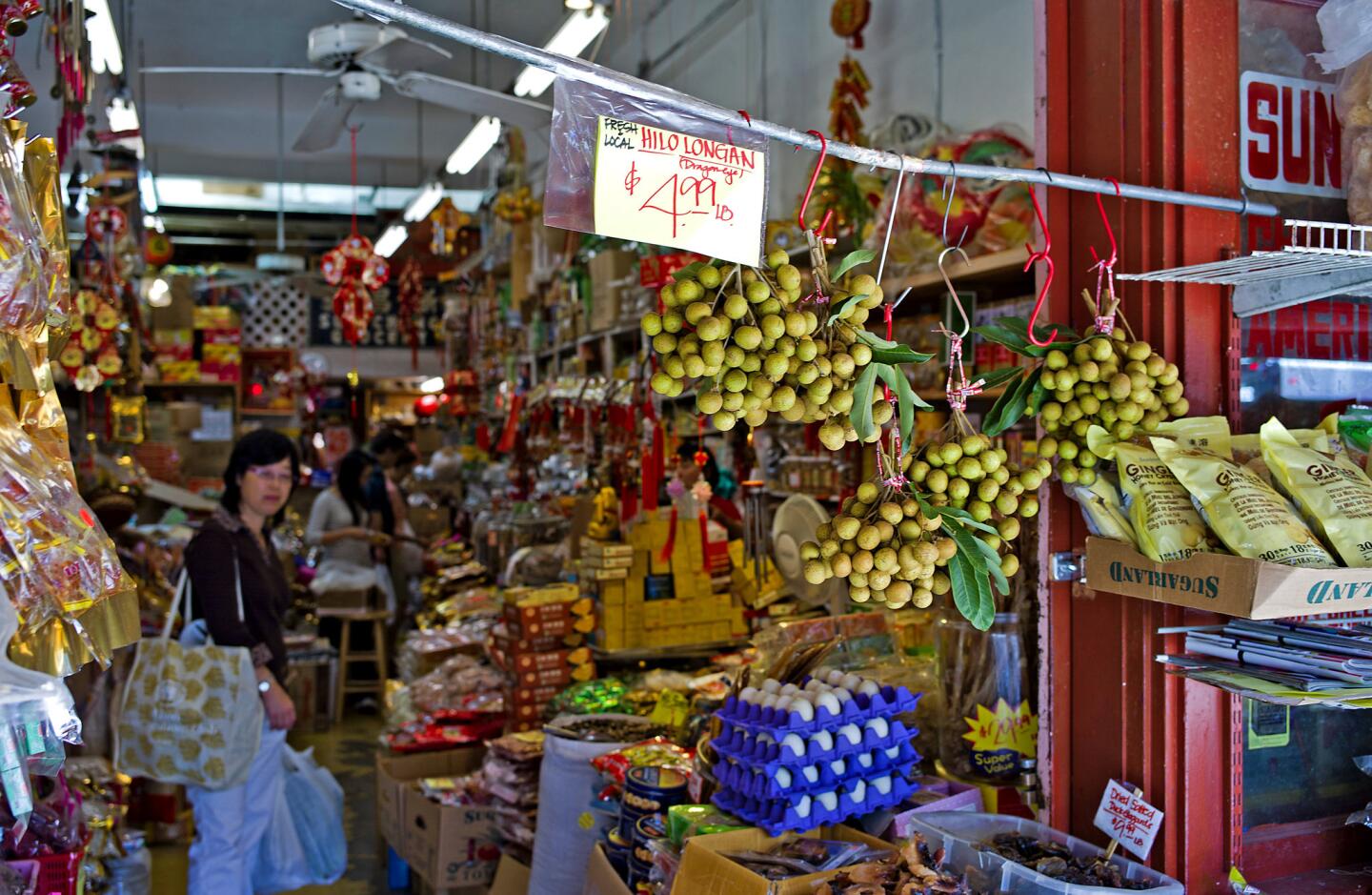
A small market in Honolulu’s Chinatown. (Marco Garcia / For The Times )
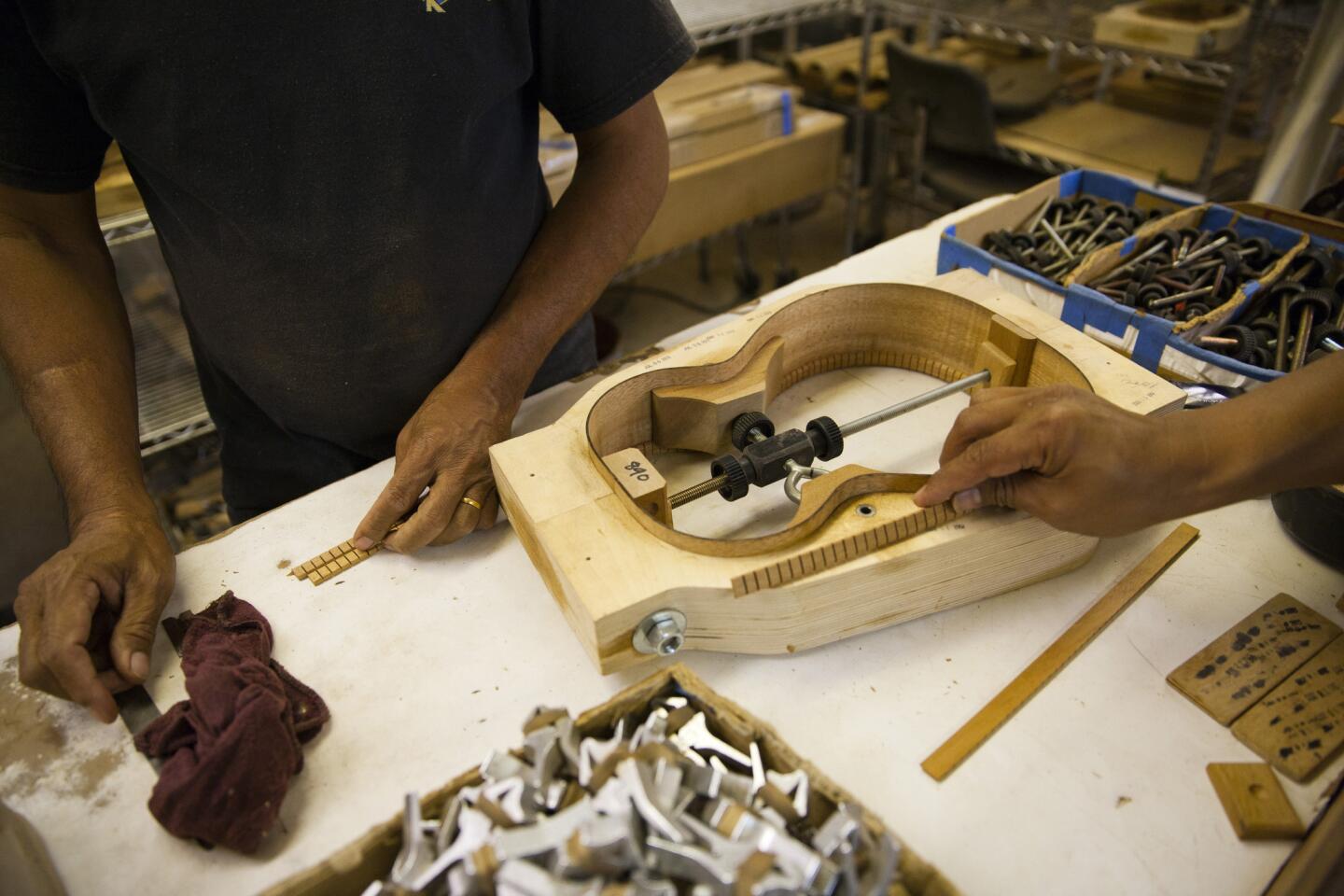
Workers assemble a ukulele at Kamaka Hawaii, a local family business that has made several ukuleles for Kamae. (Marco Garcia / For The Times )
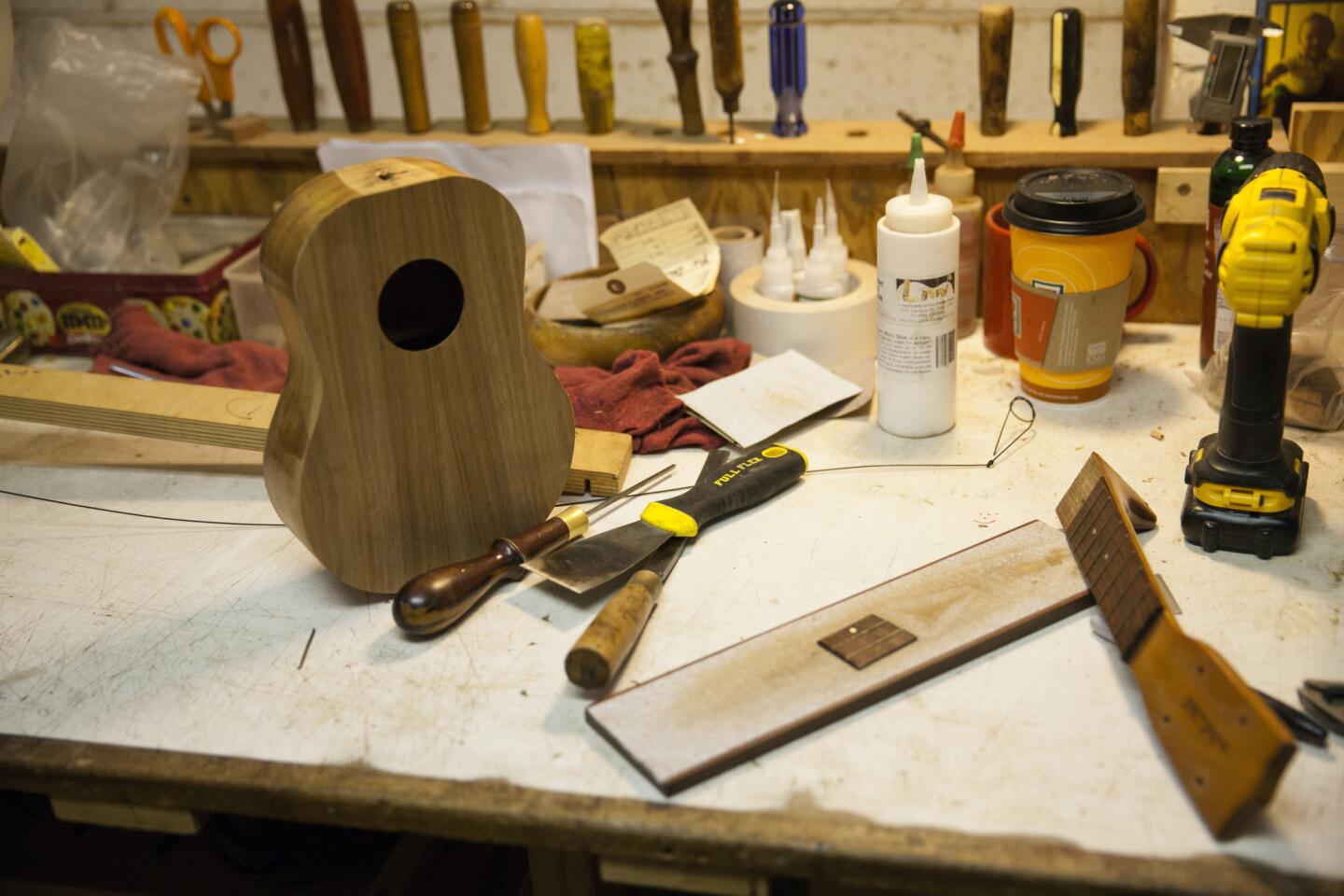
Kamaka Hawaii has been making its ukuleles from koa wood for almost 100 years. (Marco Garcia / For The Times )
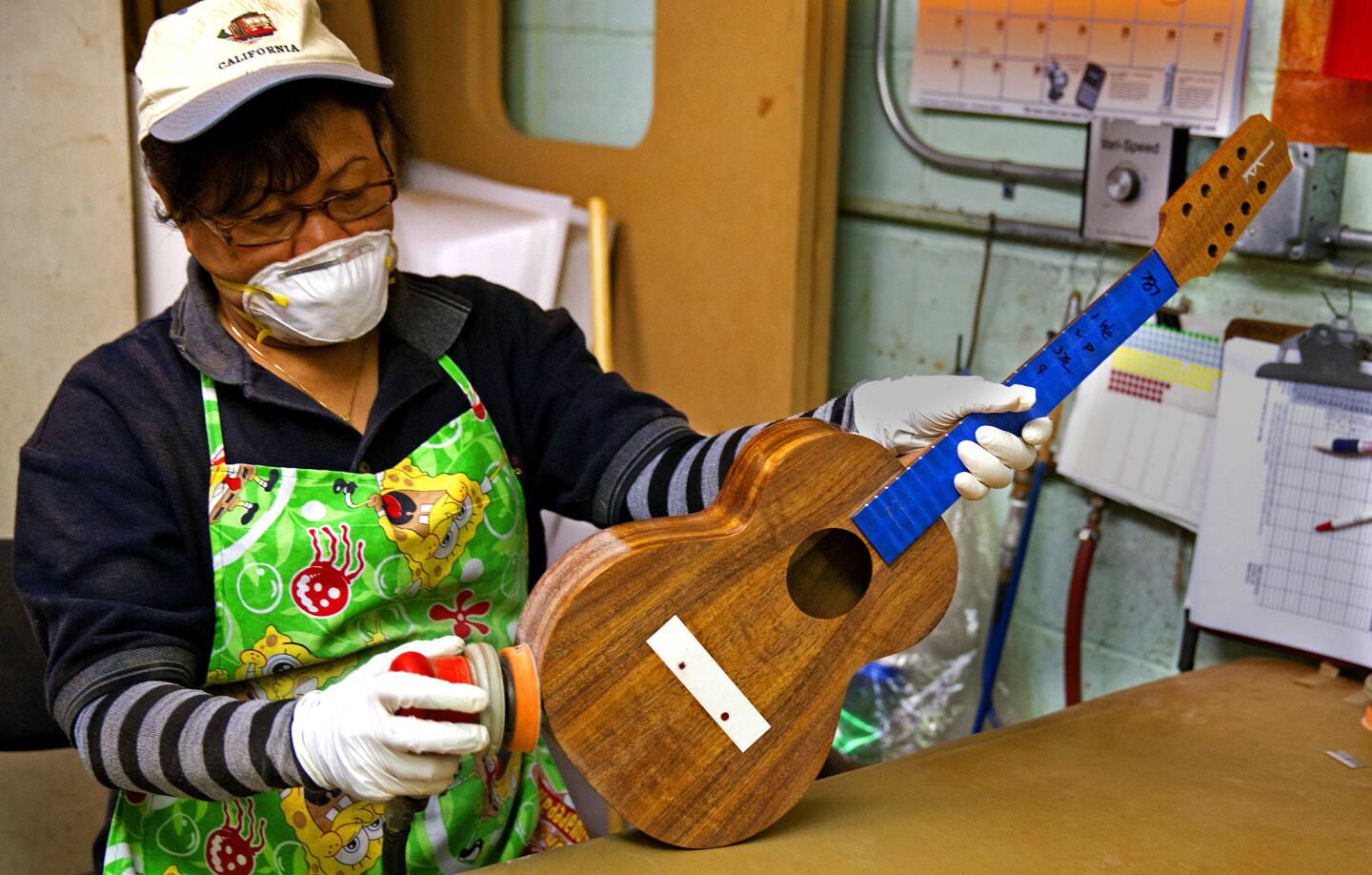
A worker sands down an unfinished ukulele. (Marco Garcia / For The Times )
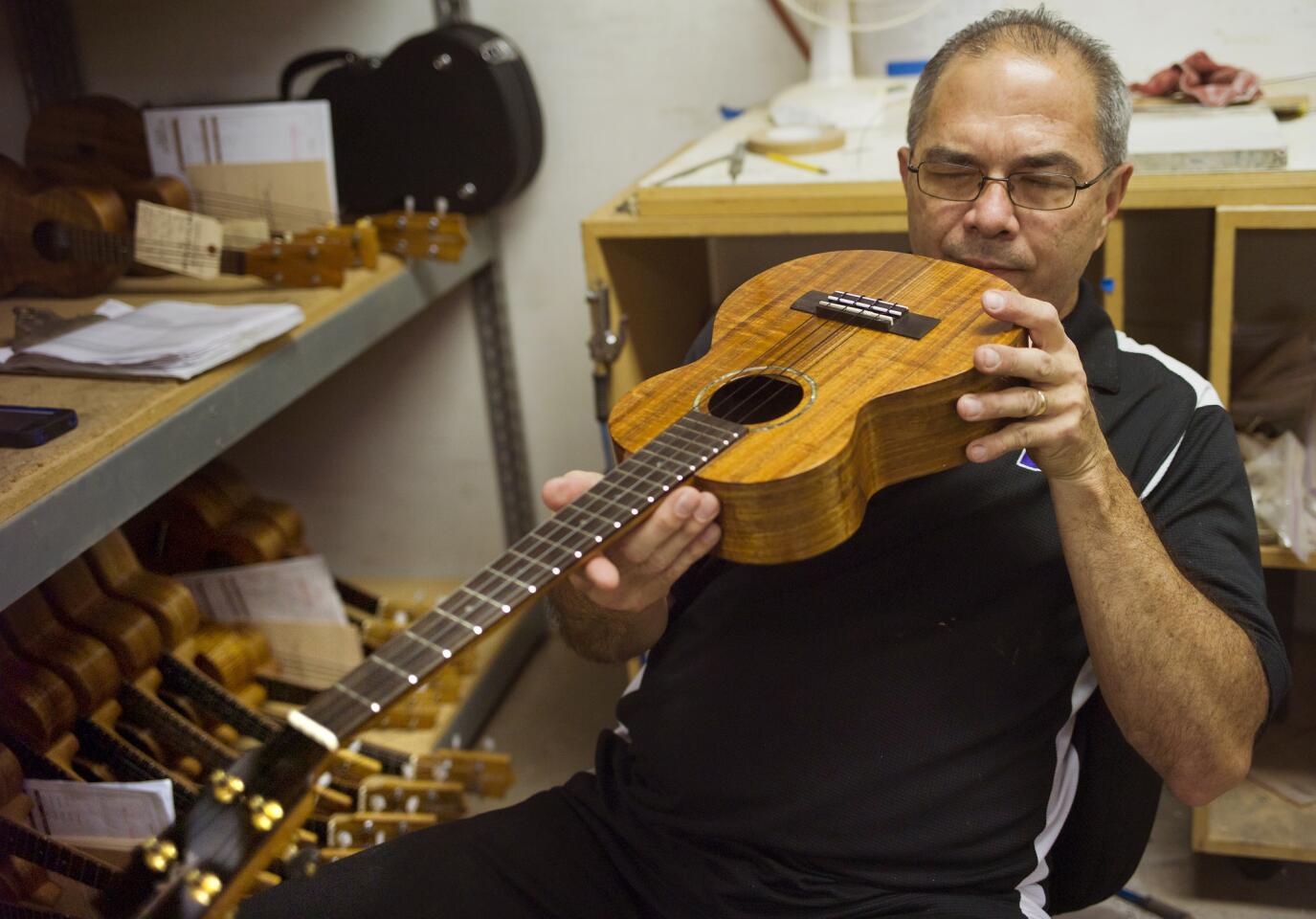
Chris Kamaka fine-tunes a handcrafted ukulele. Chris’ grandfather, Samuel Kamaka, began the ukulele business in his basement in 1916. (Marco Garcia / For The Times )
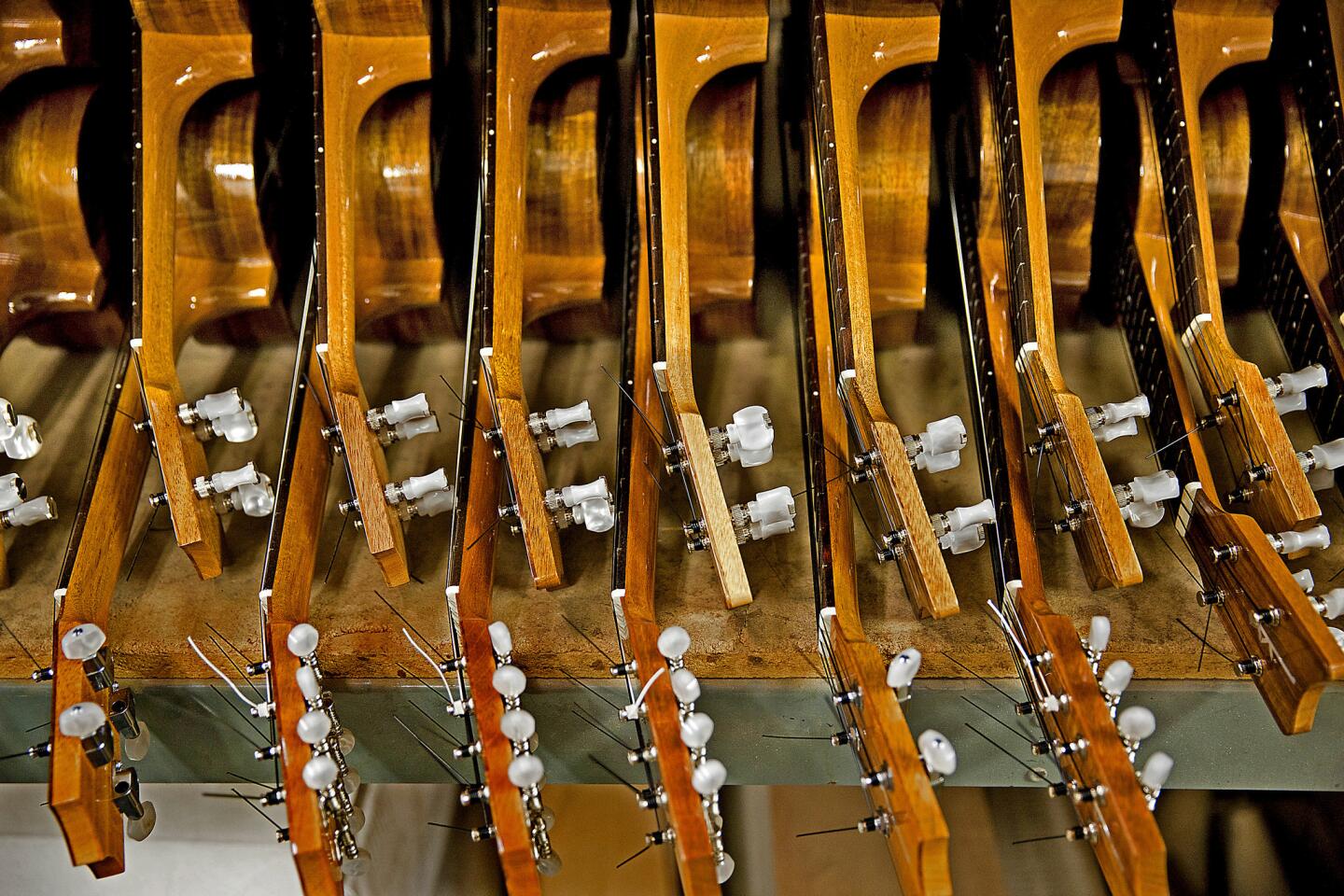
Finished ukuleles ready to be sold at Kamaka Hawaii. (Marco Garcia / For The Times )
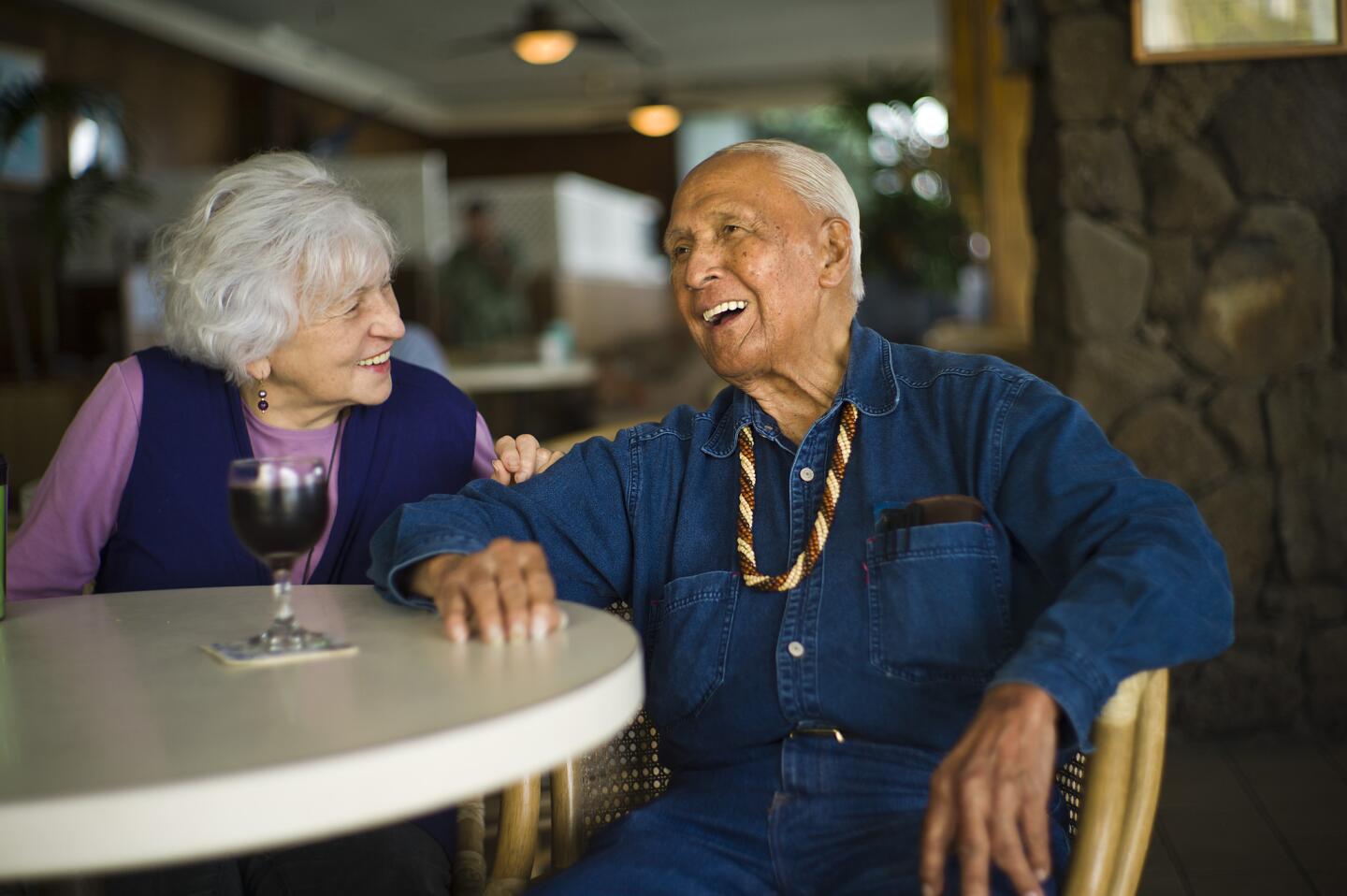
Ukulele legend Eddie Kamae enjoys a moment with his wife, Myrna, at the Elk’s Club in Honolulu. (Marco Garcia / For The Times )
Nov. 3, 2024